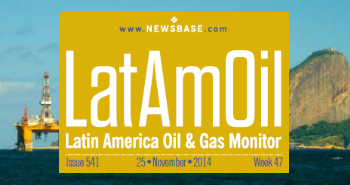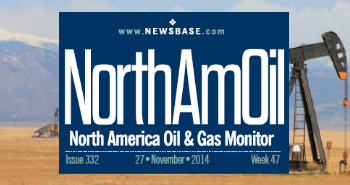Chevron ends Venezuelan oil production, investment, exports
_Cropped.jpg)
Chevron has ended its oil production contracts in Venezuela, following its US licence to operate there having been cancelled, according to Reuters’ sources. A winding-down period ended on May 27, amidst reports that it might be extended by two months in exchange for Venezuela accepting deported migrants from the US, which was ultimately ruled out.
The Texas-based supermajor has also terminated its service and procurement contracts, and has assigned control of its joint-venture agreements with PDVSA to the Venezuelan state-owned company, reported Reuters.
The US company, however, is retaining its direct employees in Venezuela, the four sources told Reuters.
Chevron’s presence in Venezuela will be confined to asset preservation, with no authorisation for investment, drilling, or exports – marking a major setback for Venezuela’s already-struggling oil sector.
The US Treasury Department reportedly approved the limited waiver on May 27. The limited waiver, which had not been confirmed by the Trump administration or Chevron by mid-week, seems to be in line with what recent news reports had suggested.
The cancellation of the licence by the administration of US President Donald Trump severely weakens the last remaining bridge between American oil interests and Venezuela’s battered energy sector. While Chevron cannot now extract or export oil, or invest in expanded operations, its continued presence signals an intent to maintain a foothold should conditions shift.
The US Treasury has, however, restricted activities that might generate oil export revenue for Nicolás Maduro’s regime, underscoring Washington’s hardening stance.
The new arrangement closely resembles the restrictions Chevron operated under from 2020 to 2022, prior to the Biden administration's decision to loosen the framework.
The US Office of Foreign Assets Control had previously extended General License 41 under a revised framework, giving Chevron until April 3, 2025, to wind down operations. But a winding down period had been awarded.
Most international partners working alongside Venezuela's state-controlled oil company PDVSA have sought similar extensions to their operating permits. Any such renewals require joint approval from both the US Treasury and US State Departments, with the latter providing policy guidance on sanctions modifications.
It was not immediately clear if other foreign companies had been awarded limited waivers, said Bloomberg. They include Spain’s Repsol and France’s Maurel & Prom had been granted similar waivers.
Venezuela sits atop some of the world’s largest crude reserves, yet production levels remain well below historical peaks following years of underinvestment and corruption under the government of President Nicolas Maduro, operational mismanagement at PDVSA, and comprehensive US energy sanctions imposed since 2019.
The limited licences granted to Chevron and other foreign operators had contributed to a modest rebound in Venezuelan oil production and exports since 2023, though output had continued to lag significantly behind the country's potential capacity.
The US oil company produced around 220,000 barrels per day (bpd) of crude in Venezuela, or about 25% of the South American country's total output. Chevron also had four joint ventures with PDVSA. Its departure leaves a significant vacuum in production capacity and technical expertise.
Chevron’s withdrawal marks a potential blow to Venezuela’s fragile recovery in oil production, with the company having played a stabilising role in recent output gains.
Venezuela’s Maduro meanwhile pledged to uphold agreements with foreign firms, El Nacional reported.
Speaking during his weekly televised programme, Maduro had sought to reassure international partners, stating: “Contracts like Chevron’s will be honoured. We are people of our word and of the law.”
The comments follow US Secretary of State Marco Rubio’s confirmation that Chevron’s licence, set to lapse on May 27, was not to be renewed.
Originally granted in 2022 under President Joe Biden’s administration, the licence allowed Chevron to resume limited operations in Venezuela amid broader negotiations aimed at re-establishing electoral norms in the country.
Maduro used the occasion to reiterate Venezuela’s openness to global investment, explicitly welcoming partners from China, Russia, Turkey, India, Cuba and Nicaragua.
He dismissed Washington’s decision, saying Venezuela would not adjust its strategy based on US actions: “If the gringos want to leave and not produce a single nail, that’s their choice.”
Maduro’s messaging appears focused on projecting legal continuity to other international stakeholders, positioning Venezuela as a viable destination for future foreign investment despite shifting US policy.
His regime announced plans to continue operating former joint projects, including Petropiar, without foreign partners.
Meetings between Chevron executives and senior Venezuelan officials, including oil Minister Delcy Rodríguez, took place recently to outline the transition, according to Reuters sources.
PDVSA is now expected to oversee operations at Chevron’s ventures, while also assuming control of crude sales – a shift that could lead to unpaid obligations to Chevron, said Reuters.
The Venezuelan firm has already started exporting blends produced from the former partnerships, though concerns over mounting debts and suspended bonuses for local workers loom.
PDVSA reportedly aims to sustain output of heavy Hamaca crude between 105,000 bpd and 138,000 bpd.
A portion will supply domestic refineries, while the rest is earmarked for export to non-US markets. To meet operational needs, Venezuela plans to recycle imported naphtha and source additional supply from its Paraguaná complex.
The US decision comes amid broader efforts to choke off Maduro’s revenue streams. Washington has introduced a 25% tariff on countries purchasing Venezuelan crude, adding further financial strain.
According to the Venezuelan Finance Observatory, the country’s economy is expected to contract by 3.5% in 2025, with annual inflation nearing 136%. Analysts warn Chevron’s exit could trigger a 25% drop in oil output and a 30% fall in state revenue.



Follow us online